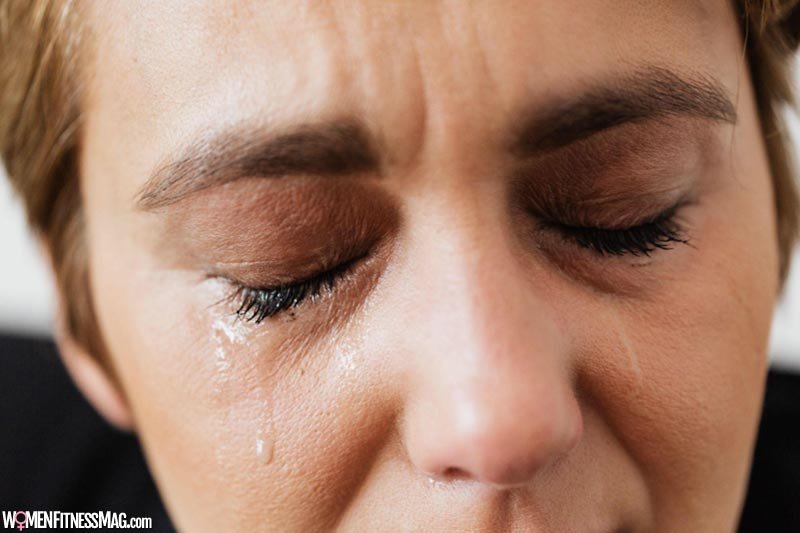Women’s Mental Wellness: Understanding the Challenges and Finding Support : Mental health issues affect millions of American women each year. Recent surveys show that 1 in 5 American women lives with a mental health condition, yet many do not seek treatment due to cultural stigmas. Understanding the unique pressures women face is key to supporting positive mental wellness.
The State of Women’s Mental Health
Globally, women experience depression at rates nearly double those of men. This reality is influenced by a variety of social and biological factors.
Balancing ambitious careers with caregiver duties for children or aging parents significantly increases daily stress levels. Juggling work, family, and personal obligations frequently leads to mental exhaustion that exacerbates anxiety and fuels conditions like depression over time.
Additionally, societal expectations and gender norms still place disproportionate emphasis on women’s appearances, skills in parenting or homemaking, and life accomplishments. Studies show that pressures to meet unrealistic cultural standards fuel body image issues, self-esteem struggles, and unhealthy relationships.
Hormonal fluctuations throughout a woman’s lifespan also impact mental wellness. Changes during adolescence, pregnancy and postpartum periods, and menopause disrupt neurochemical balances and sometimes trigger depression, anxiety disorders, PTSD, and more. While these transitions are natural, without social support they can negatively impact quality of life.
Understanding Common Mental Health Issues
Certain conditions are more prevalent in women and crucial to recognize. Knowledge is a key part of normalizing discussion and seeking help.
Anxiety disorders like generalized anxiety disorder, social anxiety, and panic disorder are nearly twice as common in women as in men. Physical symptoms often seen include fatigue, insomnia, digestive upset, and heart palpitations that worsen anxiety in a vicious cycle.
Major depressive disorder is the primary cause of disability worldwide for women. Low self-esteem, feelings of hopelessness, and lack of interest in life are hallmarks. The chronic stress inherent to modern lives exacerbates instances of clinical depression.
Body image and eating disorders also present heightened risks. Sociocultural pressures that emphasize thin physiques fuel conditions such as anorexia nervosa and bulimia nervosa in hopes of gaining a false sense of control. These illnesses emerge in adolescence through young adulthood and pose serious threats to physical and mental development without intervention.

Women’s Mental Wellness Across the Lifespan
Mental well-being is a journey that varies significantly depending on life stage. What follows are some of the main developmental periods that warrant awareness and support.
Puberty introduces drastic biological and social changes. Adolescence heightens anxieties surrounding peer relationships, academics, and developing identities. These adjustment challenges, combined with harsh cultural expectations, elevate risks for depression and self-harm among teen girls if left unaddressed.
Motherhood, too, brings rewarding responsibilities but also postpartum concerns. Postnatal depression affects 1 in 7 mothers as hormones fluctuate after delivery. However, societal “mommy wars” and pressures of perfection distort reality, hampering women from acknowledging difficulties. With compassion and medical care, most cases are resolved but early detection is critical.
During perimenopause, declining estrogen levels disrupt circadian rhythms and mood regulation. Hot flashes, night sweats, insomnia, and irritability affect around 80% of women in their late 40s and 50s. Though natural, ignoring these physiological symptoms leaves room for anxiety and depression to take hold without relief methods.
Strategies for Promoting Women’s Mental Wellness
Holistic wellness and seeking support set the foundation for resilience when facing inevitable challenges. Small but consistent self-care habits yield remarkable impacts.
Prioritizing relaxation through hobbies, spiritual practices, quality sleep, and occasionally saying “no” to obligations sustain both physical and mental health. Simple techniques make a difference.
Stress management also deserves commitment. Mind-body modalities like yoga, tai chi, meditation, and journaling lower cortisol levels. Managing daily pressures protects against potential issues from building over the years. Animal-assisted therapy has also shown benefits, as pet dogs or cats can reduce feelings of anxiety and depression.
When struggles persist or intensify despite lifestyle modifications, professional counseling provides an objective perspective. Qualified therapists assist with developing coping mechanisms, addressing root causes, and celebrating progress. Therapists may incorporate animal-assisted methods into treatment plans which can provide additional comfort and support. Unresolved concerns risk escalating without intervention; however, speaking with a mental health provider need not be daunting or permanent—it is simply preventative self-care.
Building Resilience and Empowerment

Even in the face of adversity, resilience and empowerment are within reach. The following strategies nurture mental toughness.
Role models of strength abound. High-profile women openly share recovery stories from mental illness, celebrating little victories. On a smaller scale, communities also uplift neighbors navigating hardships with positivity. These real-life examples motivate me during setbacks.
Believing in one’s abilities fosters self-esteem, an internal wellspring for resilience. daily affirmations remind women of their capabilities despite unrealistic beauty standards or professional pressures. Focusing on personal growth rather than external validation buoys self-worth.
Support networks provide haven and inspiration. Connecting with groups for stress relief through shared experiences or passion projects expands perspectives and purpose in life. Giving back by volunteering similarly activates gratitude while helping others.
Breaking the Stigma and Seeking Help
While awareness increases regarding mental health conditions, stigma still silences many. Continued progress depends on compassion.
Normalization calls for matter-of-fact conversations about prevention and treatment without embarrassment. Frank’s discussions empower communities to look out for one another, check in on those struggling, and ensure help-seeking is as important as care for physical illness.
Resources abound but sorting options can seem daunting. Start simply by consulting primary care physicians, visiting psychologytoday.com to find therapists near you, or utilizing hotlines during emotional crises. Telehealth also increases access to counseling nationwide. Success stories show recovery through commitment and bravery at each step of the journey.
Women’s Mental Wellness: Understanding the Challenges and Finding Support
What are the 5 concepts of mental wellness?, What are three sources of support for individuals seeking help with mental health issues?, Why is it important to talk about women’s mental health?, How can you support the mental wellness of others?, women’s mental health in the workplace, research on women’s mental health, women mental health help, challenges women face in the workplace, how to support women in the workplace, factors affecting women’s mental health, women’s mental health articles, women and mental health ppt,




